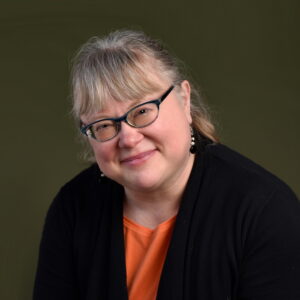
Learning While Listening
I have been a consultant for the Wabash Center for more than a decade now, and I still often wonder what I am supposed to be doing when I consult, and how I should be doing it. Supporting colleagues in the intimate and courageous act of opening up their teaching to other colleagues’ input is often an uncharted journey.
I think it’s even more challenging in an era where the primary pandemic I worry about is the one having to do with discerning what is true and real, and what is not. I think you can talk about this in any number of ways—COVID-19, racial injustice, climate catastrophe—but at heart the question is how we navigate the complex and multiple realities we and our students are inhabiting.
I have had the enormous privilege of walking alongside two gifted colleagues these past few months—Dr. Mitzi Smith and Dr. Dan Ulrich—as they took on the challenges of designing and leading a course together, where one of them was the expert and the other was the learner, all the while walking alongside their student learners.
Drs. Smith and Ulrich are Second/New Testament scholars, teaching in two very different seminary contexts. Dr. Smith is an African American woman, and Dr. Ulrich is a white man. This last sentence is at the heart of the project they took on, within the Wabash Center’s grant program, to imagine and embody what it can mean to develop a pedagogically effective and ethically responsible trans‐contextual online intensive course. They set out to bring into focus African American and womanist approaches to sacred texts—both those of the Bible, and those of the lives of women and men whose struggles are part and parcel of having no permanent shelter.
Dr. Smith was the formal teacher, Dr. Ulrich the formal learner. And I was a listener, a learner, and perhaps a cheerleader as they tried to walk this walk. I think I know a lot when it comes to designing learning in digital spaces—but much of what I know is not relevant when trauma is the essential ecology in which we are living.
Here are things I learned:
- Teaching and learning are thoroughly relational, and this moment in time requires us to face that reality directly and intentionally—it is no longer possible to pretend that what we do is purely cognitive.
- It’s really difficult to be trained as an expert in your discipline, and from that training demonstrate being an active learner.
- Humility and openness are key to navigating this terrain, but they are rarely the skills or capacities we are rewarded for in our scholarship.
- Empathy, not sympathy, is essential in this work but the difference between these two abilities is not generally taught in higher education. Certainly our students find the distinctions very difficult to parse.
- Structural and systemic racism are so much a part of higher education that it takes a lot of effort simply to discern the “next right step” in resisting them.
- Teaching together needs to begin in relationship-building long before a syllabus is written, let alone implemented.
- There is a necessary balance to be found between the improvisational nature of teaching when you are doing it alone, and the shared work of collaborative pedagogical design.
- Institutional constraints will force certain problematic compromises to be made no matter how committed you are to justice.
Here are questions I still have:
- What kind of authority is it necessary to have in a class? With a colleague? As a consultant?
- How do you say “I’m sorry” in a way that matters?
- What does it mean to be an “expert” in an academy so riddled with injustice that the very performance of “expertise” may be re-inscribing that injustice?
- What degree of transparency is important for students gaining a sense of the power dynamics embedded in specific academic disciplines, and when might it be better to obscure them?
I am left with a profound gratitude that there are scholars in this world who are seeking to break down some of the power dynamics of the academy. I remain thoroughly committed to the search for a “pedagogically effective and ethically responsible trans‐contextual” way of teaching even if I’m still not sure what that looks like—at least this project has offered me a hopeful glimpse!
Leave a Reply